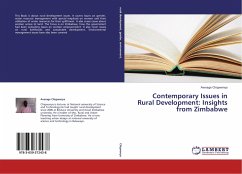Over the last few years, development actors have recognized that multi-stakeholder dialogue and concerted efforts, empowerment of people at the local level to collectively manage their water delivery, collaboration among key stakeholders, and opportunities for users to inform and influence management decisions and practices deserve adequate attention to ensure sustainable water delivery service at the operational level in developing countries and Sub Saharan Africa in particular. With this recognition, there is the need for tools and evidence-based approaches on how to initiate and sustain polycentric governance in water service delivery as conventional water supply approaches are no longer adequate due to population growth and climate change challenges. This book, therefore, provides an innovative framework, Participatory Transformative Advocacy that overcomes the knowledge and practice gap in water delivery service. The tools and platforms described in this should be especiallyuseful to development actors, professionals, researchers and students in water, sanitation and hygiene, as well as polycentric natural resources management.
Bitte wählen Sie Ihr Anliegen aus.
Rechnungen
Retourenschein anfordern
Bestellstatus
Storno








